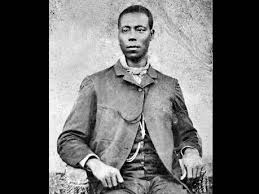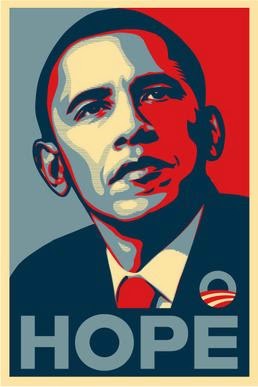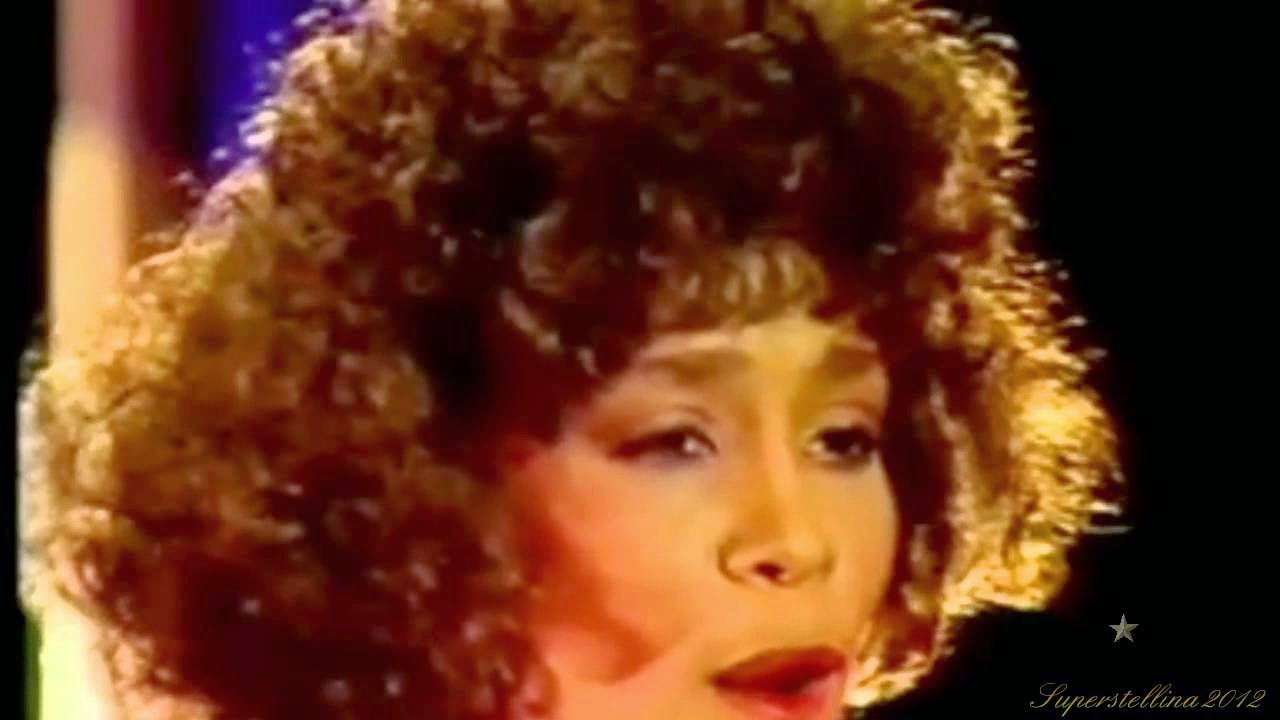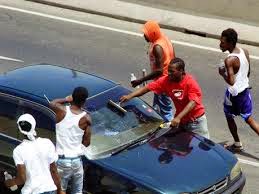The Broken Windows Theory & Policing in Jamaica: “To protect, Serve and Reassure…those who matter”
Happy Mother’s Day…lessons I am learning, issues I am contemplating…
A very happy Mother’s Day for all the mothers out there struggling today. Yay me. On Mother’s Day we celebrate an image of That Mother who selflessly gives of herself, the nurturer, the provider, the all wise, all knowing sage who instinctively knows and gives exactly what is needed to fruit of her loins.
She became a mother in pain, as she carried another life inside her for 9 months, painfully ejecting that independent life into the world. Her needs automatically became secondary to this new tiny dependent.
Remember the stages? Helpless infant leaving you to guess what was wrong. Cute toddler who amazed you every day with each new discovery. Amazing toddler who shocked you with every display of an independent personality in the form of tantrums and preferences. Interesting child learning basic skills like the 3 Rs and coexisting with other human beings. That teenager who makes you proud and exasperates you in the same instant.
I’ve watched enough movies and read enough books to know why some mothers struggle: children with mental illnesses, children who are ill, mothers themselves who battle substance abuse, who struggle with their own parenting skills because of what they lived as children growing up in a dysfunctional family context.
This is what I want for my children, and suppose most if not all mothers want, in spite of any personal failings: happiness, independence, self-confidence and a sense of fulfillment in life. If I’m to be perfectly honest, I don’t want my children to make mistakes, especially the mistakes I made. I quake at the thought of pain and wasted time that they will experience with a misstep.
LESSONS I AM LEARNING, ISSUES I AM CONTEMPLATING ALONG THE WAY
Mistakes are a part of life. How arrogant of me to accept my own mistakes and the role they have played in my own development as a person and then rail and rage and despair when I see my own child heading in the direction of a possible Mistake.
Why does the specter of a Mistake frighten me so much?
What is important to me may not be equally as important to my child. And that’s ok, because we are not the same person.
We are not the same person. We are not the same person.
Why do I tolerate people in my professional and social spheres that are different from me, and then do everything possible to get my child to see the world through my own filters?
My child is not that other child. And my child is my child for a reason. I was gifted with this child for a specific reason.
The greatest gift I can give my child is the same gift I must give myself: love, acceptance, and an opportunity to learn and move on.
The things that I am intolerant of, that I react harshly and violently to, that I sit in judgement of are often things that I see in my own self that I wish were not so.
MY CHILD, MYSELF.
This really is harder than I thought, and as I try my best to navigate, to do the right thing by my children, I am forced to face uncomfortable truths about me. I have had to confront my own personal failings and own them. I have had to confront and deal with the things about myself that I loathe, that I wish weren’t so, that I see reflected in my offspring. I’ve had to draw on wells of patience and love that I didn’t know existed, and give some of that to myself as well.
I see my child trying to cope with life by avoidance. I see it in myself as well. I see my child afraid to make a mistake. I see that in myself as well.
And I also see myself eventually pushing past the fear of failure and I hope my child sees that as well.
I see myself making the effort to be brutally honest with myself, if with no one else, and I hope my child sees this as well.
I see myself trying new things, taking up challenges (eventually, in some instances, after prolonged procrastination) and I hope my child sees this as well.
I see myself learning to forgive me, blunder after blunder, pressing through despite guilt and self recrimination, and I hope my child sees this as well.
 And I see sharp wit, humour, keen intelligence, political awareness, empathy, the soul of an artist, eloquence, a gift for self expression, determination, several degrees higher than I see in myself and I shake my head in amazement and awe and respect, and I secretly high-five myself with glee and say to myself: my child will be ok. Please God, make them be ok.
And I see sharp wit, humour, keen intelligence, political awareness, empathy, the soul of an artist, eloquence, a gift for self expression, determination, several degrees higher than I see in myself and I shake my head in amazement and awe and respect, and I secretly high-five myself with glee and say to myself: my child will be ok. Please God, make them be ok.
WHAT IS FOR SURE
I love my children. I hope I have been able to convince them of that. I hope they conclude, if not today, then hopefully someday, the same thing I concluded about my own mother: her actions were not always perfect, but her intentions towards us always were. I have no doubt, that my mother’s love is real and fierce. This I know. And at 47 years old, I am grateful for her love. It has supported me, saved me, kept me going.
The Visit: Yes We Can Clean Up Kingston (apparently!)
“All of Jamaica (that matters) is Here” Diner en Blanc, Kingston, Jamaica.
 |
| Photo courtesy of Diner en Blanc, Kingston’s FaceBook Page |
My dreams…
“These dreams go on when I close my eyes. Every second of the night, I live another life.” Heart.
I was alone with Luther Vandross on a stage in some sort of concert hall. The auditorium was empty. Luther was sitting at the piano smiling, running through a number of his songs. It was Fat Luther in my dream, clad in acid washed baggy jeans, sneakers and sweater. I was standing, listening to him, hardly believing my good fortune. Luther was happy, relaxed, telling me the stories behind those songs, giving me the low down on a number of the people he had collaborated with. I sang along with him, trepidaciously of course, and he just kept smiling and encouraged me to sing up and sing along. I don’t remember a single thing that he shared, but I do remember the feeling I had when I woke up and remembered the dream. “That was cool” I smiled to myself.
I dream. Regularly. I have recurring dreams. I have dreams that I don’t remember the details of when I wake up. I have gotten up from dreams, fallen back asleep, only to have the dream continue. I have gotten up from a dream, sick to my stomach only to realise with a profound sense of relief that it was just a dream. I have had dreams about the most unlikely people. So glad they don’t know that they’ve made it into my dreams!
As I was thinking about my Luther Vandross dream, I remembered a very similar dream I had in my second year of undergrad studies. I was a passenger on a train. Whitney Houston was singing “Where do broken hearts go”. She had on a navy inspired black and white outfit. She was happy, standing at the front of the car, singing her heart and soul out. I was sitting at the rear of the car, enthralled at what was unfolding before my eyes. I sang along softly, smiling. Miss Whitney called me up. I looked back at her incredulously, Me? She motioned: “come on up”. I went up and she smiled at me and mouthed “sing”. I was nervous. I was unbelieving. “Come on, Girl” she encouraged me. I opened my mouth. I closed my eyes and I did my best to keep up with Miss Whitney. I knew I wasn’t doing a good job. But she wouldn’t let me quit and Whitney and I sang the hell out of that ballad! I woke up with aching jaws, happy as could be, shaking my head with the certain knowledge that it could only happen in a dream.
So when I had a similar dream 27 years after my Whitney dream I searched for the meaning.
I always try to find the meaning to my dreams. I don’t think it’s hocus pocus. I’m in fact thankful for my dreams, the pleasant and the not so pleasant. Many times I think my dreams force me to confront issues swirling in my subconscious and act like a relief valve, giving expression to mounting pressures, fears, uncertainties, forcing me to face them, challenge them and move forward unfettered.
The dream where I am struggling to get ready and I can never go any faster or improve my level of preparedness… The dream where I am in supermarket with a long list of things that I must get, and the supermarket is about to close and I can’t find what I want or I can’t make up my mind… The dream where I am being chased by a faceless man on a motorcycle through corridors and I wake up just before he catches me… Those are recurring dreams that I have had at different points in my life. Times when I have been faced with decisions, choices, dissatisfaction with my current state of being, fears about the future. And my response has been to acknowledge those fears, pray about them, challenge them and keep on moving.
There have been dreams where I can’t quite decipher the meaning. So I try to define my prevailing feelings upon waking up. If I am at peace, I don’t give the dream a second thought. If I feel uneasy or sad or scared, then I pause. I pray. I pray for the people in my dream. And then I keep on moving. I don’t believe that every dream is a fait accompli. Like I said, dreams can be a relief valve, and I think that dreams can be a portend inviting action.
These singing dreams though… So I researched the possible meaning of my happy singing dreams. One school of thought suggests that dreaming about celebrities indicates some yearning to be like them. LOL! I’ve always wished I could sing. Not that my lack of singing ability stops me. Ask my children, H and colleagues. Poor them 🙂 My limited musical training and my relatively good ear tell me quite plainly when I am hovering above or below that note. I can hear it quite clearly. And I can also hear quite clearly my inability to translate what my mind knows to be accurate to the sound coming out of my mouth. But this desire of mine to be able to sing has certainly never been an obsession or a life show stopper. So I searched on.
“To sing in your dream represents happiness, harmony and joy in some situation or relationship. You are uplifting others with your positive attitude and cheerful disposition. Singing is a way to celebrate, communicate, embrace and express your feelings.To hear someone sing in your dream signifies emotional and spiritual fulfillment. Your mood is changing for the positive as your outlook in life is looking up.”
Well alrighty then. I’ll take that! There have been some changes for the better in my life, methinks. I have more challenges at work that if I handle correctly, will see me stretching as a professional in my field. I don’t have the dead end, what the hell am I doing with my life feeling that I had 8 months ago. I’ve ticked off some personal goals to do with education and investments. I’ve gotten a grip of some sort on my health. And sure, there are still areas of my life that pose a challenge… that’s how I know that I’m living 🙂
But as with every dream, good and bad, I keep moving forward. I seek guidance, I seek mercy and I look forward to every new day as a chance to get it right. Selah.
Independence: Nothing more than a warm and fuzzy feeling at best. Remembering Tisha.
I’m sad. In 1962 Jamaicans were hopeful as we claimed our independence from Britain. It is 2015. Here we are. It makes the news when an eternally malfunctioning elevator at the public hospital in Kington is fixed. Horror stories, almost unbelievable, about the absence of basic medical supplies in the public health system become a daily fixture on radio talk shows. Bombarded with one political scandal after another (think Trafigura, Cuban Light Bulb, Manat-Phillips-Phelps, Finsac, Tivoli incursion to name a few) our numbness renders us impassive to constitutional breeches that could have serious repercussions down the road. If you’ve ever been the position of having to find suitable hires, then I need not regale you with how the educational system has failed. We have had rehashed anti-crime programmes thrust upon us ad naseum, with nothing but rising crime, more sophisticated in its organisation. The generation before my own has failed, and I suspect that my own children will say that we have failed them too. We haven’t fought for better. We have tolerated mediocrity, and some of us have been complicit when it suited a personal agenda.
This morning I remembered Tisha*. Tisha was a HEART trainee with the organisation. She was quiet and diligent. She was well spoken and shy. One morning she brought some documents to my office for my signature. She greeted me with her quiet voice and pleasant smile. As I scanned the documents and signed, we began talking. I am a prober by nature. I stopped signing and sat back. She had caught my attention with her thoughtful, well constructed answers to my probing. It turned out that Tisha had 10 CSEC subjects, sciences included. Yet here she was, a filing clerk in a programme that demanded no more than 4 CSEC subjects.
“I wanted to go to 6th form to do A levels and then head on to University to do medicine. But my family couldn’t afford it. My father told me that it was time for me to get a job and do my part.”
I probed further.
“I wanted to do medicine” she explained with a sad smile.
“So what is your plan B then?” I insisted.
Tisha was stumped. The notion of a plan, much less a plan B had never occurred to her.
“Listen” I said…”Med school may be out of your reach. Let me be honest with you. But that does not mean that you have to put all professional aspirations on hold. If I told you that you could go to University, but that you couldn’t do medicine, what would you do?”
“Accounts” she offered.
“Now we can plan!” I said excitedly.
“But I have to have A levels” she said worriedly.
“No, no, no! To do A levels now would add years and cost to your journey. Here’s what you can do: get out of this HEART internship and get a real job. Then apply to UTECH. Then apply for a student’s loan.”
We had the start of a plan. Every week I’d check with Tisha re: the job hunt. In about 2 months she told me that she had a firm offer that would pay her much more than the HEART position. I guided her with respect to the timing of the resignation from HEART. I took her to the Students Load Bureau and guided her application to UTECH.
Tisha moved on. I heard that she was doing a degree in Business Admin at UTECH and I rejoiced. Tisha had been suffering a double whammy: lack of resources and lack of guidance.
I ran into Tisha about 4 years later at the public library. We embraced, and then she introduced me to her toddler daughter shyly. I cut straight to to chase: “So did you finish your degree?”
“No” she replied softly, head down. “I had one more year to do, but I had to stop.”
I encouraged her to enquire about the possibility of doing it part-time, and of the need to marshal all her resources into completing that degree.
I never kept in touch. I hope her story ended well.
Free education was never really free. As a nation we never defined how education would be paid for. The result has been a diminishing quality of product year after year after year.
Decades after so called independence, our safety nets and support structures for a marginalized population are not at all robust. Our young lack opportunities and guidance. Independence bestowed a warm and fuzzy feeling. Not a thing more.
What next then?
I suspect that we will have to an about face for better to come. The current trajectory, be it green or orange will continue the descent into poverty, inequity and hopelessness.
*name changed
The Day Peter Tosh challenged me. I was 9.
“NO! Don’t you believe them!”
The Slave Trade, Maroons, Windscreen Wipers and Reparations: I want to know.
The white man was aided and abetted in getting us to this side of the world. He went in with shiny baubles and found willing helpers all along the west coast of Africa. Slavery, we were taught, was not new in the motherland. Triumphant tribes dominated hapless members of the defeated tribe and put them to work. When pale skinned humans on huge boats showed up on Her shores, armed and heavy laden with trinkets, it would seem that our brothers thought little of handing their own conquests over to these strangers in exchange for bounty from the strangers.
 |
| Accurate representation of what happened in West Africa or not? |
Those of us who survived the horror of the Middle Passage and the rough initiation into work and torture and rape and destruction of familial ties on the Pale Skinned’s plantations were about to face yet another betrayal. Some intrepid warrior-slaves fled the plantations in Jamaica and headed for the hills. In that mountainous, beautiful terrain, communities of these braves lived and hid and warred with the British militia. Their survival was due in large part to their own skill at bush and jungle war craft. Legendary members of this mountain community live on today in poems and stories of their exploits: Tacky the Chieftain, Three Finger Jack and Nanny of the Maroons, herself a national hero of Jamaica.
Jamaican Maroons are often described as enslaved Africans and persons of noticeable African descent who ran away or escaped from their masters or owners to acquire and preserve their freedom.
But their survival was also due to agreements that they made with the British. These fearless braves secured their own survival at the expense of other runaway slaves who were seeking a way out of slavery and who also headed for the hills. They handed over these their brethren to the British as a peace offering.
 |
| What was the full story of the Maroons and their relationship with the British? |
Consider too the story of another one of Jamaica’s national heroes, Paul Bogle. Paul Bogle led a protest against harsh economic conditions. He marched with a throng to the courthouse in Morant Bay. The British authorities of the day there panicked, responded with undue force, and it was at this stage that the protest morphed into a rebellion. Lives were lost in the upheaval. And the Maroons were the ones who captured Bogle and handed him over to the British. Paul Bogle was hanged the very next day.
 |
| Paul Bogle, National Hero |
To be sure, there is great controversy today over Maroon history in Jamaica. I certainly do not have the answers. And I am mindful of the absolutely true sentiment:““Until lions have their historians, tales of the hunt shall always glorify the hunter”.
Still I ask: what role did our own really play in our history, in our enslavement by Europeans, in our forced journey to the west?
Any discussions about the evils of slavery and its reverberations right into 2015 society must contemplate this question. I do not pose this question in a bid to excuse the white man or to in any way diminish what he did. The white man was the architect of this evil scheme to enrich himself and his own homeland at the expense of the lives, culture and humanity of the peoples of Africa. But full resolution never happens outside of the anything the full truth. The truth in all its uncomfortable, awkward glory is what I seek.
We were heading towards Downtown Kingston yesterday, H and I. It was a rare occasion that found us traveling together to work. I had just dropped my own car at the dealer for servicing and he graciously consented to pick me up there and drop me to work. The courtesy shuttle offered by the dealer would have seen me getting to office perilously close to 9:30am when I had a scheduled meeting. In the vicinity of Three Miles, the usual swarm of windscreen wipers made their way hungrily through the throttling cars in the traffic. Every single morning, I, the lone person, the lone female in my car tell them “NO”. They beg, they press up against my window, they beg some more, I keep saying “NO.” They approached H’s big, black, heavily tinted truck. He barely shook his head indicating no, he opened not his mouth, they didn’t miss a beat and kept moving right along. I cussed and railed. These windscreen wipers had obviously looked at my sex and my car and decided that they would try with all their might to extract money from me. Their quest for money was not based on the principle of “I need, they all have, let me beg all.” Their quest for money was selective, based on who they perceived was a soft touch and who had money to give them.
Is the quest for reparations fair then? Peoples of African descent this side of the world justifiably seek reparations from former European slavers and colonisers, not unlike the Jews seeking (and getting) restitution from Germany as a result of the Holocaust. But without answers to the question of the role of our African brothers in Africa getting us onto the white man’s slave ships, and without answers to the role of the Maroons in our own history here in Jamaica, is our demand for reparations really based on principle? Are we merely going where we think the money is?
Look, I don’t know the facts. There are people who have offered reasonable explanations about the role of Africans in the slave trade. I also know that Africa is not a country. But I think that political boundaries notwithstanding, there ought to be a natural unity amongst the black peoples of Africa. I also know that the Maroons were a source of trouble for the British slavers and colonizers, killing, marauding, burning and destabilizing the government and structures of the day. They also inspired many of their African brethren with their radical bravery and cunning against the establishment.
But, I am not convinced that we have answered head-on the question I posed earlier: what role did our own really play in our history, in our enslavement by Europeans, in our forced journey to the west?
I want to know.
Bun Babylon and Challenge the status quo.
It was Christmas Day and I was plating the various offerings when our nephew, visiting from Toronto, arrived. JJ, now 22, had been living in Canada for the past couple of years, going to college, learning to fly planes and working. He had grown into a physically impressive young man and an interesting one to boot. I had planned to do the curried shrimp last. We fixed ourselves drinks and I invited JJ to come and learn from the Master. He obliged. He’s pretty good in the kitchen himself, and IMs from him with requests for instructions as to how to cook oxtail, or what can he use these beans to do were not unusual. So I took him through wok preparation and the range of Indian spices that he must use, the importance of coconut milk in curries, and we chatted. He spoke about the subtle and no so subtle experiences he had had with racism in Canada. He spoke of how he coped, reacted and dealt with them. He used a phrase that immediately got my attention: “…challenge the status quo”.
“Listen Kelly: I take great pride in seeing how people react to me when I’m on my way to my warehouse job, a young, black man with a hoodie on, and then seeing their faces transform when I challenge the status quo by engaging them on something like navigating the 737 into specific airports. I break stereotypes one by one.
I deliberately spent my own money to upgrade my seat on the flight home. I wore my black blazer, stretched my legs and sipped red wine. I love saying: How’re your doing! and seeing them look around uncertainly. Yup… I’m breaking stereotypes one by one”
I challenged him: “Aren’t you merely trying to fit in, JJ… behaving “white” so as to ingratiate yourself?”
“No, no, no! Not at all! I want to challenge the status quo, I want to break stereotypes one by one so that the next time they have to interact with a young black man they won’t be so quick to stereotype, categorise and dismiss” he countered with certainty.
Long after we packed away the Christmas Day leftovers JJ’s statement about challenging the status quo and breaking sterotypes remained with me. There was something about challenging the status quo that resonated deep inside me.
“Keep Calm and Bun Babylon”… I love this message. It speaks to determination, resolve, and intentional acts aimed at challenging the status quo.
That’s how I want to live my life.
Challenging the status quo is not about the foolish, purposeless acts of youth aimed at nothing more than simply defying for defying sake. To bun Babylon, to challenge the status quo is to refuse to accept that “that’s just the way it is”. It is to refuse to allow anyone or anything to define you. It is to refuse to live selfishly and safely. To bun Babylon, to challenge the status quo is to live intentionally… to live out loud… to be authentic and productive. It is about taking the time and making the effort to know You and your mission. It is to influence your Community for the better. It is to refuse to wallow, to refuse to exist in a mediocre context, it is about identifying your gifts and using them to leave your space better than you found it.
Not all of us will be obvious trail blazing revolutionaries like Mandela, Malcolm and and Martin. But all of us can impact at least one person. If the almost 7 billion of us on the planet positively impact one life…well… do the math.
I think of the persons who have impacted me: Raymond who took me to task in no uncertain manner after one disheartening performance review by our then manager. “Are you really waiting for him to validate you, Kelly? KMT.” Peter who continues to give unselfishly of his fine mind to help me solve work related problems and who challenges and inspires me with his brilliant approach to problem definition and solving. My mother said something to me when I was 13 that I have never forgotten: “You have reserves of strength that I have never seen in anyone else, Kelly.” I don’t believe her, but I have drawn on her confidence in me on many, many occasions.
And I try to pay it forward. I hope that I will have raised productive, confident, happy citizens of the planet. I hope that will have inspired at least one dream in one person. I resolve to bun Babylon and Challenge the status quo.
Happy New Year!












